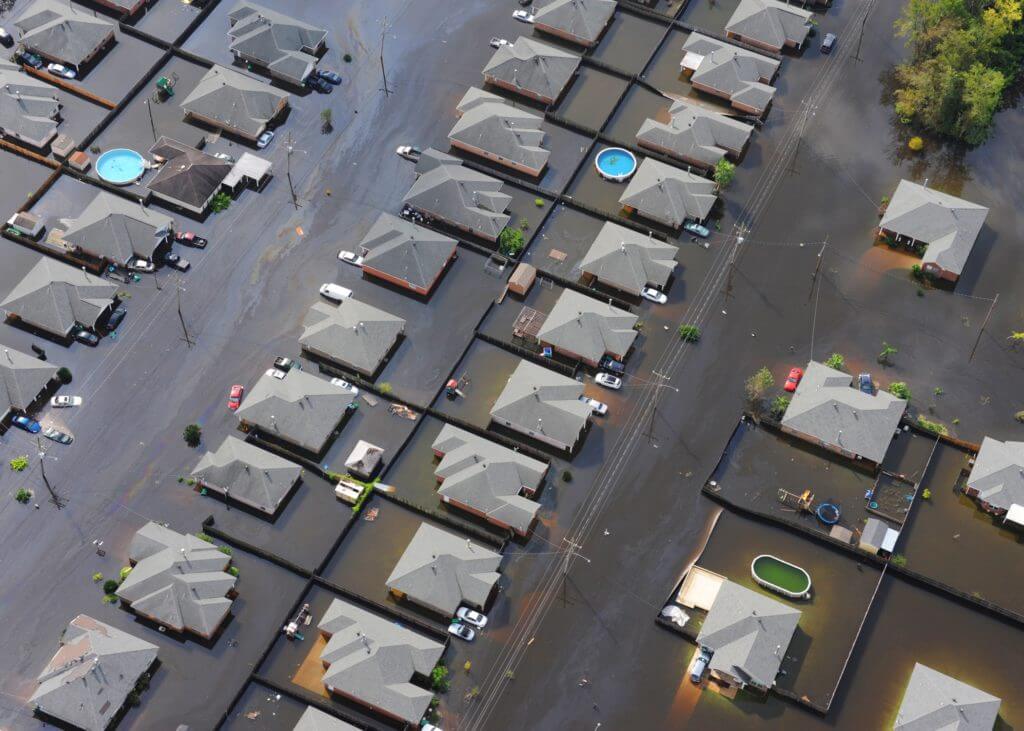
Raizner Slania LLP is representing homeowners who were flooded as a result of the Addicks and Barker reservoir releases in the aftermath of Hurricane Harvey. Both homes upstream and downstream of the reservoirs suffered catastrophic flood damage as a direct result of the actions of the U.S. Army Corps of Engineers. There are a number of lawsuits against the Army Corps of Engineers to recover damages caused to properties; and, while the federal government has tried to have the lawsuits dismissed, judges overseeing the litigation have kept the lawsuits moving forward.
Federal Government Files For Dismissal
In February, the government filed motions to dismiss in both the Downstream and Upstream sub-docket claims regarding flooding caused by the Addicks and Barker reservoirs. The government essentially made three arguments for dismissal:
- There was not a constitutional taking of land because the government was “merely acting to mitigate or minimize an inevitable harm to the public” (both downstream and upstream);
- Plaintiffs lack a protected property interest in the property purportedly taken. In the downstream case, there is no right to keep land downstream of a flood-control dam free from floodwaters during an extreme storm; and, in the upstream case, there is no right to keep one’s land free from waters backing up from a flood control dam; and
- The court does not have jurisdiction over the claims because the case should be brought as a tort, not as a Fifth Amendment takings case (both downstream and upstream).
Essentially, the federal government argued these cases did not represent violations of the Fifth Amendment. The Fifth Amendment prohibits the government from taking private land for public use. In the Addicks and Barker Reservoir cases, property owners claim the Army Corps of Engineers intentionally allowed their homes to flood to prevent catastrophic damn failure from flooding much of downtown Houston. Property owners claim allowing their homes to flood constituted a taking of private land for public use.
Recently, both Chief Judge Braden (presiding over the Downstream sub-docket) and Judge Lettow (presiding over the Upstream sub-docket) issued orders deferring ruling on the federal government’s motions to dismiss until trial.
In the same order deferring her ruling on the motion to dismiss, Judge Braden set the trial for the 15 downstream test properties beginning April 8, 2019, and set various other deadlines for discovery and experts. The government has moved for reconsideration of this ruling, contending (among other things) the court should rule on the motion to dismiss before discovery closes. This motion for reconsideration faces long odds of success.
Although Judge Lettow technically deferred ruling on the motion to dismiss in the upstream case, he (unlike Judge Braden) addressed each of the government’s legal arguments in turn. Judge Lettow found in favor of the plaintiffs in nearly all respects. Two passages of his opinion were particularly favorable for the plaintiffs: In one, he specifically recognized the government “misstated Texas property law” with regard to flood control measures, citing a Texas Supreme Court case recognizing “where the government made a conscious decision to subject particular properties to inundation so that other properties would be spared, as happens when a government builds a flood-control dam knowing that certain properties will be flooded by the resulting reservoir[,] . . . of course the government must compensate the owners who lose their land to the reservoir.”
In his second point, Judge Lettow rejected the government’s argument that the plaintiffs cannot state a takings claim simply because the reservoirs were built decades ago. Judge Lettow focused on the government’s action in building and modifying the dams “in such a way that they could and did impound storm water behind the dams on both government and private property. That the government’s action bore fruit or had consequences only some years later does not obviate the reality that action, not inaction, is at issue.” Judge Lettow then entered a scheduling order setting trial for the 14 upstream test properties beginning February 19, 2019.
Although neither Judge Braden nor Judge Lettow explicitly denied the government’s motion to dismiss the cases, their rulings are helpful because they allow the plaintiffs to proceed with discovery. Judge Lettow’s opinion in particular gives reason for optimism because he explicitly rejected several of the government’s legal theories. We remain optimistic that the Courts will ultimately deny the motions, and allow us to proceed with trial on a full factual record for the test properties chosen in both cases in the Spring of 2019.
Get Help With Your Hurricane Harvey Reservoir Flooding Claim
The experienced lawyers at Raizner Slania LLP are working with property owners whose homes were flooded by the Addicks and Barker reservoirs. Our lawyers understand the unique legal complexities of each type of claim and are fighting hard for clients to help them rebuild. If your property was flooded, either downstream or upstream of the Addicks and Barker reservoirs, call us immediately to discuss your reservoir claim.


